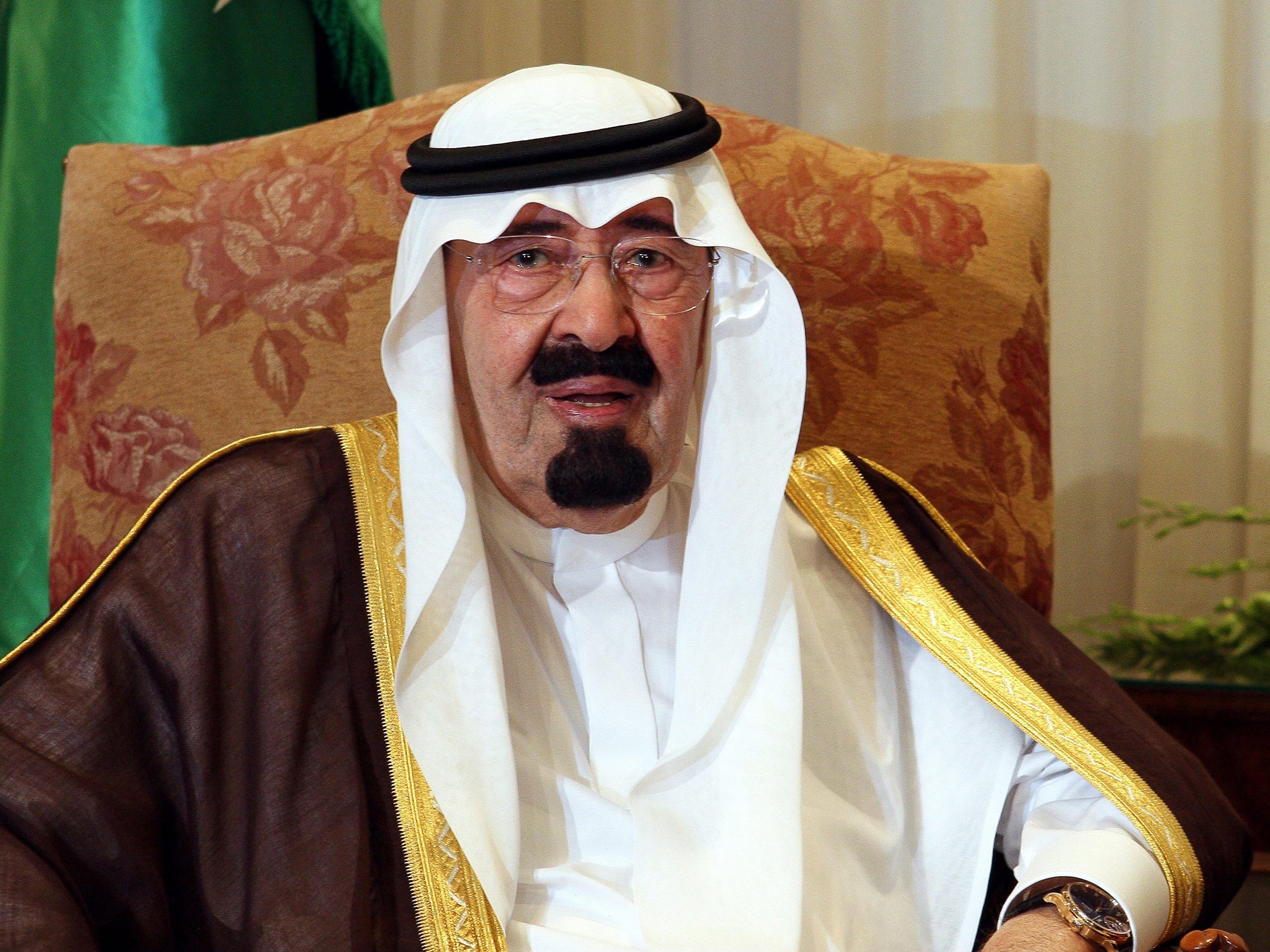King Abdullah dead: Oil prices jump as death of Saudi king fuels uncertainty in markets
Brent crude futures rose to a high of $49.80 a barrel shortly after opening

Oil prices jumped today following the death of King Abdullah of Saudi Arabia at the age of 90.
Brent crude futures rose to a high of $49.80 a barrel shortly after opening before easing back to $49.30 a barrel by 0650 GMT, up 78 cents. US WTI crude futures were at $47, down from a high of $47.76 earlier in the session.
Abdullah’s brother Salman succeeded him as the monarch of the world’s top oil exporter – but his death catalysed further uncertainty in energy markets already facing some of the biggest shifts in decades.
Salman named his half-brother Muqrin as heir in a move aimed at avoiding a potential succession crisis at a time when Saudi Arabia faces unprecedented turmoil on its borders and in oil markets.
"This little spike in prices is understandable. But this is a selling opportunity in our view. It should be sold off quickly and it won't last long at all," Mark Keenan of French Bank Societe Generale told Reuters.
After seeing strong volatility and price falls earlier in January, oil markets have moved little this week, with Brent prices range-bound between $47.78 and $50.45 a barrel.
The new king is expected to continue an OPEC policy of keeping oil output steady to protect the cartel's market share from rival producers.
"When King Salman was still crown prince, he very recently spoke on behalf of the king, and we see no change in energy policy whatsoever," Keenan said.
Biggest oil producers (IEA figures)
Show all 10Analysts said almost equally as important as the royal succession to energy markets would be whether Saudi oil minister Ali Al-Naimi, in office since 1995, might step down.
Abdullah's death comes amid some of the biggest shifts in oil markets in decades.
Oil prices have more than halved since peaking last June as soaring supplies clash with cooling demand.
Booming US shale production has turned the United States from the world's biggest oil importer into one of the top producers, pumping out over 9 million barrels per day.
To combat soaring output and falling prices, many oil exporters, such as Venezuela, wanted the 13-member Organization of the Petroleum Exporting Countries (OPEC) to cut output in order to support prices and revenues.
Yet, led by Saudi Arabia, OPEC announced last November it would keep output steady at 30 million barrels per day.
Abdullah is to be buried in an unmarked grave. In the kingdom's strict Wahhabi sect of Sunni Islam, ostentatious displays of grief are frowned upon: after previous deaths of Saudi monarchs and other top royals, there was no official period of mourning and flags hung at full mast.
Additional reporting by Reuters
Subscribe to Independent Premium to bookmark this article
Want to bookmark your favourite articles and stories to read or reference later? Start your Independent Premium subscription today.

Join our commenting forum
Join thought-provoking conversations, follow other Independent readers and see their replies